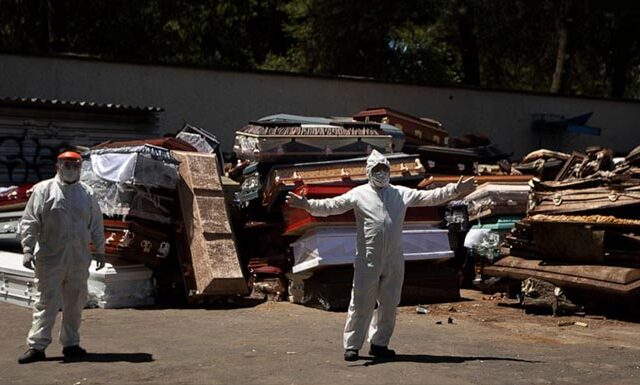The corona pandemic raises the questions of dependency on global supply chains for essential supplies. In a response the German Federal Association of Funeral Services is asking the government for steps in strengthening the essential production of domestically made coffins.
The importance of the death care industry has become painfully clear as an essential workforce as the coronavirus spreads across the world and causes havoc. Import halts are increasingly causing issues as countries are running out of import coffins and domestic production can’t keep up.
Lack of domestic coffin supply around the world
Spain, Brazil, New York, Indonesia, Ecuador are just a few of the examples where a lack of coffins caused situations that no one would have believed possible only six months ago. Germany is now taking action to prevent shortages in the future by strengthening its domestic coffin production capacity.
Eastern Europe undercuts German Producers
In a response to the current coffin shortages situation, Jürgen Stahl, chairman of the Federal Association of Funeral Services in Germany is asking the government for a ‘death health insurance benefit’ reintroduction to open up to help strengthen the domestic production of coffins.
Germany produces around 200,000 coffins per year, which is 20% of the 950,000 used in the country per year. The other 80% of coffins are mainly imported from Eastern European countries, where hourly labour costs can be six to eight times lower than in Germany.
In addition to the lower cost of personnel, Germany´s close proximity to Eastern European makes it not only economic, but accessible compared to other cheaper suppliers in the Asia region, for example. Poland is by far the most competitive taking two thirds of the casket import volume.
There are currently 15 medium sized specialized coffin producers active in Germany. And smaller carpentry focused companies also attempt to make coffins for a small part of the market.
The Federal Association of Funeral Services in Germany is demanding the government to reinstate the ‘Death Benefit Fund’, which amongst other things would help people that cannot afford a funeral. Until 2003, €800.000 per year was used for the death benefit which helped domestic spendings. The investments in local production would make Germany less reliant on imported coffins if a similar crisis would hit the country again in the future.








